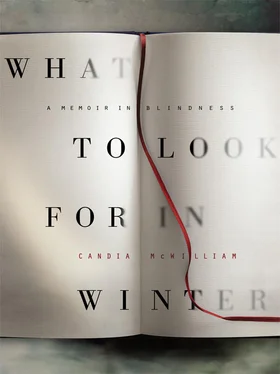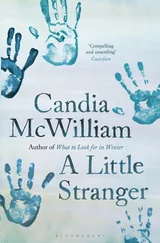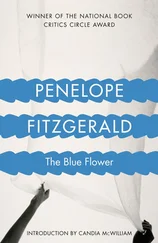I left Farleigh. I went to stay with my friend Rosa Beddington in her tiny house in Oxford. The telephone rang. It was Lucinda Wallop, Quentin’s sister. She said, ‘Daddy’s dead.’ I said, ‘No, he can’t be.’ He was only sixty-one and Quentin had just found a home for him close to us on an island on the River Test. He was a loveable, unrealised man.
I visited estate agents. I am not at all sure how lucid I was. One estate agent assured me that very few rental houses accepted children, most particularly not one house I liked the sound of that lay deep in rural Buckinghamshire. ‘No Children’, I read. There were no pictures of the property.
Very uncharacteristically, I found myself driving down a half-hidden road signed to Wotton Underwood. I could park my little car because there was a large gravelly yard to the side of what seemed to be an architectural hallucination, a golden pink central house flanked by lantern-shaped pavilions, behind delicate wrought-iron, golden-berried gates. It was a sleeping beauty. I looked to my right and saw that there was a gate leading to a wishing well on a wide lawn that ended in a ha-ha and beyond that at least one lake. I rang a doorbell at the side of the house. A funny bracket, as though for a pub sign the size of an equestrian portrait, stuck out of the side that faced where the cars were parked. It was high summer. I realised that this bracket must be for swinging in enormous paintings, pianos, furniture through the great windows of the house. The door was answered by a woman with my maternal grandmother’s very voice. She took one look at me. I was not a pretty sight, fat, wretched, scared, uprooted, unaware that alcohol would never make anything better. The witch who opened the door, for a white witch she was, said, ‘My child, you will live here. And you will bring your children.’
This phenomenon was Mrs Elaine Brunner, who, going one day to a garden clearance sale in the 1950s had seen the house to which that garden was attached. The house was due for demolition, having in its last usage been a school for delinquent boys. She had on that day a powerful instinct that underneath the Edwardian modernisations by Sir Reginald Blomfield there still lurked a Soane house. It had been built for the dukes of Buckingham and Chandos as a companion house to Stowe.
She saved it, buying it for a sum, I think, close to £5,000. She was, right up till her death, one of the most compelling, sexy yet maternal and grand-maternal women I’ve ever known. She was one of the beloved monsters of my life and she worked untiringly for that extraordinary palace she saved.
My first night at Wotton, I slept in a slightly-adapted-for-lodgers ducal apartment. The telephone went and it was Quentin. It seemed to be ridiculous to be separated from someone whom one so wished to console. I asked him whether he wanted me to attend his father’s funeral and he said, ‘It depends on whether you cared for him or not.’ Of course I went.
And so we parted, as though our lives were happening to other people. We held hands in court and there seemed no question but that the children, on account of their situation, must stay at Farleigh. It was more unusual then, and my sense that this was the right decision was not one that I could ever make clear to any but the most intimate of my friends.
People have tackled me about this, thinking it unnatural or weak, but it laid between the children’s father and myself a small island of trust amid the perilous currents of divorce. It was the children who mattered. Whether or not it was right for the children can only be gauged by them. I wanted Quentin to trust me and knew that the next thing we had to build was a safe place for our children.
Mrs Brunner it was who insisted that we all, including Quentin, have Christmas together at Wotton. On the years when the children were with me at Christmas after that, Quentin went and worked for the homeless at Crisis at Christmas. I received a letter from Aunt Mickey that told me among many other things I had lost ‘a place in the world’.
Wotton became my place in the world, by which I mean my place quite far away from the world. Perhaps it was here, in its tall rooms and in its perfect self-contained hiddenness, that I relapsed into my inborn habit of reclusion. Wotton never did feel lonely, because I discovered that Mrs Brunner shared my affection for in-house mail, so that we left one another letters almost daily if we had not met in the rose garden or taking a walk under the chestnuts by the first lake. The park had been laid out by Capability Brown and there was, to the small landscape in which the house lies, an adaptation to mortal scale and vision that made walking along those lakes past their half-resurrected bridges and temples a humanising experience. Before the first lake there were two Doric-pillared Grecian temples. Oliver and Clementine and I would take bread to the swans who lived here. On the farther lake lived Canada geese with their two faithful watchmen-geese standing apart from the flock. Returning from walks to the house with the children was each time almost impossible to believe. We would pass a herbaceous border, leave the rose garden to our left, go and sit in the long grass on a bench by the wishing well and be paid visits by Solomon and Sheba, Mrs Brunner’s peacocks, who, she said, had probably flown over from Waddesdon, which looked down at Wotton from the east. If it was a sunny day, Mrs Brunner would call us up on to the back steps of the house that led in to her own quite breathtakingly sparkly apartments. She always had a treat for the children, though her appearance was in itself the greatest treat, for she was brightly manicured and preferred to wear the colours of the rainbow. She smelt good too. Inside the house the tall windows had shutters that were barred at night across the dizzy original glass. Each shutter had its hole, an oval about eight inches tall, through which to look out for the moon in its transit.
There were secret rooms and rooms filled only with ebony knickknacks. One room contained only objects made of mother-of-pearl. Clementine’s and my favourite had a high curved ceiling edged with shining pearls, each the size of a tennis ball, in freehand plasterwork; below this lay disposed Mrs Brunner’s own extraordinary wedding dress and that of her daughter, so that the whole room had a silvery-fragile bridal air, as though from the story of Beauty and the Beast. It was like the dream of a princely wedding that the poor Beast might have prepared.
If Mrs Brunner was attached to fairytale stage sets, she was also a brilliant chiseller at all possible architectural or state-related organisations that might help her to protect, conserve and reveal her exigent treasure trove. Even when I lived at Wotton House, she discovered an eighteenth-century ha-ha behind the nineteenth-century one, an indoor fish pond laid with tiles and braced with elegant bronze pillars, and several further follies in the woods beyond the second lake. I do not know how old Mrs Brunner was, though I imagine it would be easy enough to find out. Her role in our lives was so supernatural that I prefer my ignorance. I never called her by her first name.
The house within has a trembling stone staircase with wrought-iron work by Tijou that quivers as one mounts the stairs. The vistas within the front hall suggest the receding background of a Renaissance painting, exemplifying and playing with perspective. The hall is full of light, very high, and paved with black-and-white marble in squares on the grand scale. In winter, an open fire was set in the fireplace in that front hall, where the children and I left carrots and biscuits and, at Mrs Brunner’s insistence, a tot of brandy for Father Christmas.
Читать дальше











